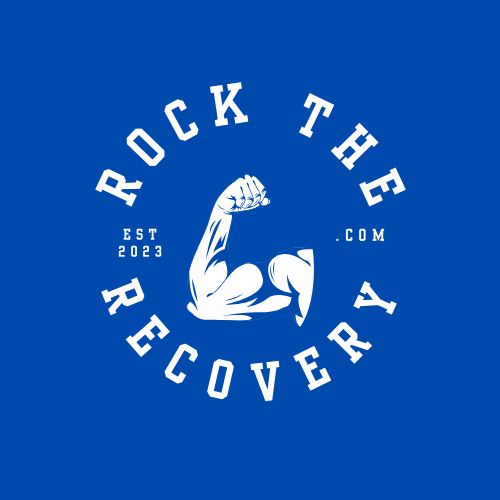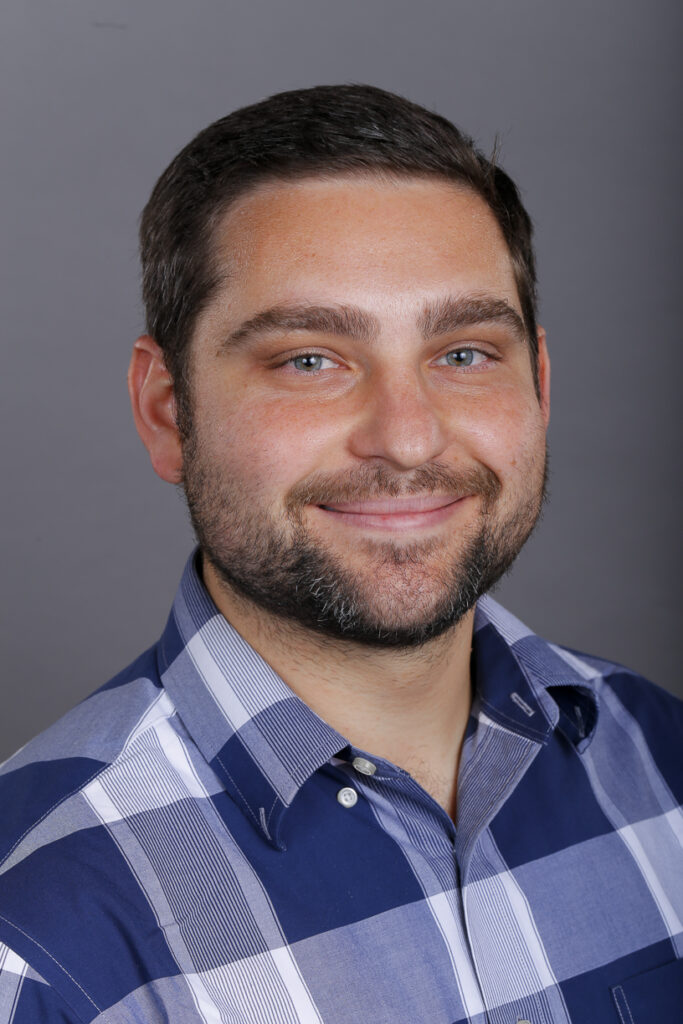As Physical Therapists we are tasked to improve the physical quality and function of our patients. Of course, we all take varying approaches on how we go about treating your patient’s ailments. How we as Therapists handle each patient’s mental and psychological state likely varies even more so. Unfortunately, for some, we don’t at all. Along the spectrum we each broach motivation and mentality in our own way during treatment. We all accept that your patient’s headspace and their primary motivation is important. Today I had the great opportunity to speak to Chris Gudjenov, M.A,CMPC, who has made it his life’s work to teach Therapists how to tap into your patient’s motivation to improve outcomes and patient satisfaction.
Rob: Hi Chris, thank you for speaking to me on such an important topic in Therapy! Getting your patient in the right headspace has to be priority number one. I feel like this is an unspoken and underutilized topic in Therapies.
How did you find yourself in such a specific niche, and what is a CMPC?
Chris: A CMPC is a Certified Mental Performance Consultant. It is a certification issued by the Association of Applied Sport Psychology (AASP). It requires successful candidates to complete graduate coursework in a variety of psychology and performance enhancement classes, as well as a very difficult comprehensive exam. The final part of the certification was my favorite: that is having to do over 400 hours of direct client work in athletics, military, and performance arts. I completed most of my hours in collegiate sports providing mental skills training to various NCAA men’s and women’s sports like football, track and field, baseball, and soccer.
I found myself in this niche of mental coaching after suffering an ACL injury when I was 19 years old that caused me a significant level of psychological struggle. My physical therapist suggested I look up some books and videos on sports psychology. I had no idea what that was at the time, but after a quick dive into it I was hooked! I was fascinated by the impact our mindset had on recovery and how a few simple mental skills could enhance my recovery and bring direction and meaning to my life after recovery. I have spent the last 10 years getting multiple degrees in sports psychology and working with professional and collegiate athletes and the US Army on applying these mental skills to their performances.
Rob: What an amazing story, not surprisingly a lot of Therapists including myself also get their start in the field from their own personal experience with Therapy. Injuries can come with a great deal of psychological burden as well as physical. Be it the worry of not getting back to full recovery, or possibly the realization that you may not ever play again. Currently, I work with patients in short term Rehab who are in a different state of their lives. However, the motivational issues still remain. A patient who is recovering from a life altering stroke for instance has a lot of mental burden and they often struggle to remain positive day in and out. So, your programs teach us how to keep our patients in the right headspace and motivation.
Where do you think most Therapists’ shortfalls are when it comes to motivating their patients?
Chris: I think most therapists’ shortfalls in motivating their patients come from a lack of understanding of the various types of motivation. I teach an online class to Physical Therapists highlighting each of the five types of motivation and how to use them. In a nutshell, this class focuses on Ask, Apply, and Anticipate. Meaning, that we first need to ask our patients what they want to achieve with physical therapy, and this must be very specific. Not just to feel better, but rather to be able to play 18 holes of golf without back pain, play with my kids, or grandkids more often. Or, they may want to get back to their sport and perform at a high level. Whatever that motivating factor is, we need to ask them to specifically describe it. After, we apply various motivational tools to help them keep the main thing the main thing. At the end of the day, if a patient is aware and reminded of his/her ultimate goal, they are more likely to stick with protocols and treatment long-term. One of the most powerful motivation tools a physical therapist can use is simply reminding and correlating how this exercise or modality can help their patient achieve whatever their goal is.

For example, if they want to play 18 holes pain-free, tell them something like, “Imagine how great it will be when you put that last ball in on 18 and feel pain-free, if you stick with these four exercises daily you will be on your way to doing just that.” Lastly, we need to anticipate any potential hurdles our patients might have. These can be plateaus along the path to recovery or potential dips in performance. A mentally-trained Physical Therapist will anticipate these potential hurdles and have a plan of action on navigating and getting through them. For example, a mental tool I use a lot with clients going through recovery is visualizing themselves working through a hurdle and seeing themselves accomplish a successful 36″ box jump or sprinting as hard as they can. If we can help our patients see it, they can believe it and then they can do it. In my experience, mentally-trained physical therapists see immediate and long-term positive impacts on patient outcomes by incorporating these types of mental tools and models.
Rob: You know, it seems so obvious but it’s amazing how easily this can be forgotten when you are busy or stressed out. Often, we have a blueprint in our heads that gets us to their goal, but it’s not communicated well. I would imagine most of us ask the patient’s goals on evaluation, but little to no specifics are discussed after that.
How can a Therapist assess where they stand regarding how we are affecting our patient’s mental state? What are signs that we need to grow in this area?
Chris: I think Physical Therapists have such a unique perspective on the mental growth of their patients. Some of the most mentally challenging and rewarding experiences a patient can have in their recovery occur with a Physical Therapist. By just asking and reinforcing patients’ motivating factors throughout recovery can be a huge mental boost. Starting a session with a reminder of their motivating factor will have an immense benefit to the quality of the session. For example, saying “Are you ready to get one step closer to playing 18 holes pain-free?” will have an immediate and immense positive impact on the mindset a patient has about that session. That to me is a massive sign if a Physical Therapist is mentally-trained or not – if they can continuously remind their patients of their goals and connect the session in unique ways to achieving those goals.
use ROCKRECOVERY promo code for an additional 15% off!
What are some of the topics you speak on to enhance patient recovery? Can you give any advice for “dealing” with a very depressed, negative or unmotivated patient?
In addition to the topics I have already mentioned, I would say another major topic I teach Physical Therapists is how to deliberately utilize and implement mental skills into the recovery process. There are four basic mental skills I believe every physical therapist should be utilizing throughout the recovery process. Those skills are visualization (mental imagery), motivation, managing negative thinking (self-talk), and controlling what we can control.

In regard to dealing with a negative or unmotivated patient I would suggest utilizing the mental skill of self-talk. This skill focuses on understanding the power our thoughts have and how intentionality in our thinking creates our reality. If I am thinking “I will never get through this” our immediate actions are to avoid getting better or have a bad attitude toward recovery. If we can help our clients alter their thoughts by using a self-talk tool like additive thinking which can enhance our negative thoughts. An additive thinking phrase can improve a thought by adding “but _____” to our negative emotion. This can sound like “I will never get through this, but I will keep trying and look for little improvements today.” A totally different thought with a totally different outcome! There is a lot more that goes into implementing self-talk, but a simple tool like the “, but” can really make an immediate and long-term difference.
Rob: That is a great tool, I can think of about five patients I will be implementing this with tomorrow. I also understand that you also train Therapists on getting into the right mindset for career progression.
For those of us who are striving to become leaders in our field, how do we get into the right mindset to do so?
Chris: Great question! There is a famous TED talk by Simon Sinek that discusses what he calls the Golden Circle, which is basically a mental model for identifying WHY we want something at the core of our thinking. This means that we must first figure out why we want to be a leader in the field. Our why is rarely financially driven and much more purpose-driven. For example, I want to be a leader in my field because I love helping athletes get back to their sport with confidence. After we know why we want to be a leader in our field, we focus on identifying specific strategies on how we can be a leader in our field (start a blog or podcast, open a business, write a book, use social media, etc). Lastly, we identify what specific daily actions will need to do to achieve the specific strategies we identified earlier. For example, if I want to start use social media to help athletes get back to their sports with confidence I would need to come up with daily posts about various stretches or movements to help athletes in their recovery process. This WHY – HOW – WHAT model really helps us be purpose-driven and action-oriented. I have worked with Physical Therapists on implementing this model to their practice on an individual and group level for over six years now and have seen so many Physical Therapists improve their motivation and realign with their purpose.
Rob: That sounds excellent! Can these trainings be found on your online training program? I look forward to learning more.
Chris: That’s right, I love working with PT’s and I appreciate the opportunity to hopefully bring more awareness and opportunity for Physical Therapists to be more mentally trained. I offer Mental Training Programs for Physical Therapists called MT4PT. These groups are 6 weeks long and teach a variety of mental skills that PT’s can use themselves. As well as how to apply them to their patients. Thank you!



